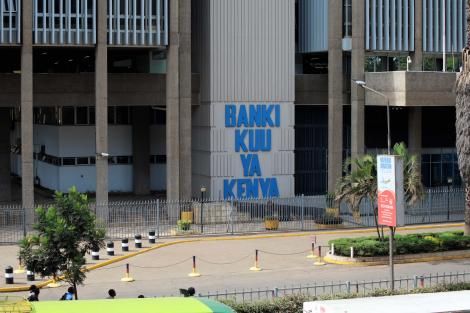Tech moves fast—stay faster.
Tech moves fast—stay faster.
Kenya Expands Bank Transfer Hours with KEPSS Upgrade, Eyes 24/7 Real-Time Settlement


By Farhan Ali • June 23, 2025
Starting July 1, 2025, Kenya’s interbank payment backbone—KEPSS (Kenya Electronic Payment and Settlement System)—will officially operate from 7:00 AM to 7:00 PM on weekdays, extending by nearly five hours from the current 8:30–4:30 window. The reform reflects the Central Bank of Kenya’s commitment to enhancing real-time financial services for citizens, businesses, and institutions alike.
What is KEPSS?
KEPSS is Kenya’s version of a Real-Time Gross Settlement (RTGS) system—a secure, centralized banking rail that clears high-value, time-sensitive digital transactions between financial institutions. It’s used for:
- Large corporate transfers
- Treasury settlement
- Bank-to-bank clearing
- Government disbursements
- Insurance and loan payments
Why the Expansion Matters
In an economy where mobile money dominates but remains largely consumer-facing, interbank infrastructure has often lagged behind. KEPSS has historically operated on narrow weekday hours, creating bottlenecks for transactions that need same-day clearance—especially in the business-to-business (B2B) and public sector space.
By extending hours to 7:00 PM, the Central Bank aims to:
- Increase liquidity efficiency
- Reduce end-of-day backlogs
- Improve transaction predictability for businesses
- Reduce dependency on international clearing partners for time-sensitive deals
- Lay the groundwork for continuous (24/7) clearing over time

Moving Toward 24/7 Banking
Kenya’s new schedule is part of a multi-year plan to enable always-on financial services by 2027 or earlier. The shift would allow Kenyans to send and receive high-value transactions—even outside traditional hours, including weekends and public holidays.
Who Benefits?
- Banks: Can clear positions later into the day and optimize treasury operations
- SMEs: Gain faster access to supplier and customer payments
- Government: Improves disbursement schedules for salaries, pensions, and social programs
- Consumers: Benefit indirectly as real-time systems feed into retail payment services
Key Challenges
- Interoperability: Kenya still relies heavily on fintech ecosystems (e.g., M-Pesa) that don’t always align with interbank systems
- System Resilience: Ensuring uptime and failover protection will be critical for 24/7 adoption
- Cybersecurity: A larger operating window increases exposure to digital fraud if not properly secured
Regional Implications
Kenya’s move mirrors similar expansions in Nigeria, South Africa, and Ghana—countries racing to build sovereign payment rails that reduce reliance on private fintech giants and support cross-border trade integration under AfCFTA.

Conclusion
Expanding KEPSS hours is more than a technical tweak—it’s a foundational upgrade to how Kenya moves money. As the country inches closer to 24/7 real-time banking, it strengthens its case as a continental leader in digital finance.
Additional References:
- TechCabal Finance Africa (@techcabal)
- Central Bank of Kenya (@cbkkkenya)
- Business Daily Africa (@businessdailyafrica)
- M-Pesa Official Updates (@mpesaupdates)
- FSD Kenya Reports (@fsdkenya)
Explore more
Yiren Digital and Innodata Lead June’s AI Stock Picks as Investor Attention Shifts to Niche Enablers
By Farhan Ali • June 23, 2025 With Big Tech AI stocks...
Pakistan Finalizes $4.5 Billion Islamic Finance Deal to Resolve Power Sector Debt Crisis
By Farhan Ali• June 23, 2025 Pakistan has taken a major step...
Singapore Dollar Could Match U.S. Dollar in Our Lifetime, Says Bank of Singapore Economist
By Farhan Ali • June 23, 2025 A major shift may be...
Nigeria’s Borrowing History to Be Linked to NIN in Major Credit Reform Push
By Farhan Ali • June 23, 2025 Nigeria is taking a bold...















Leave a comment